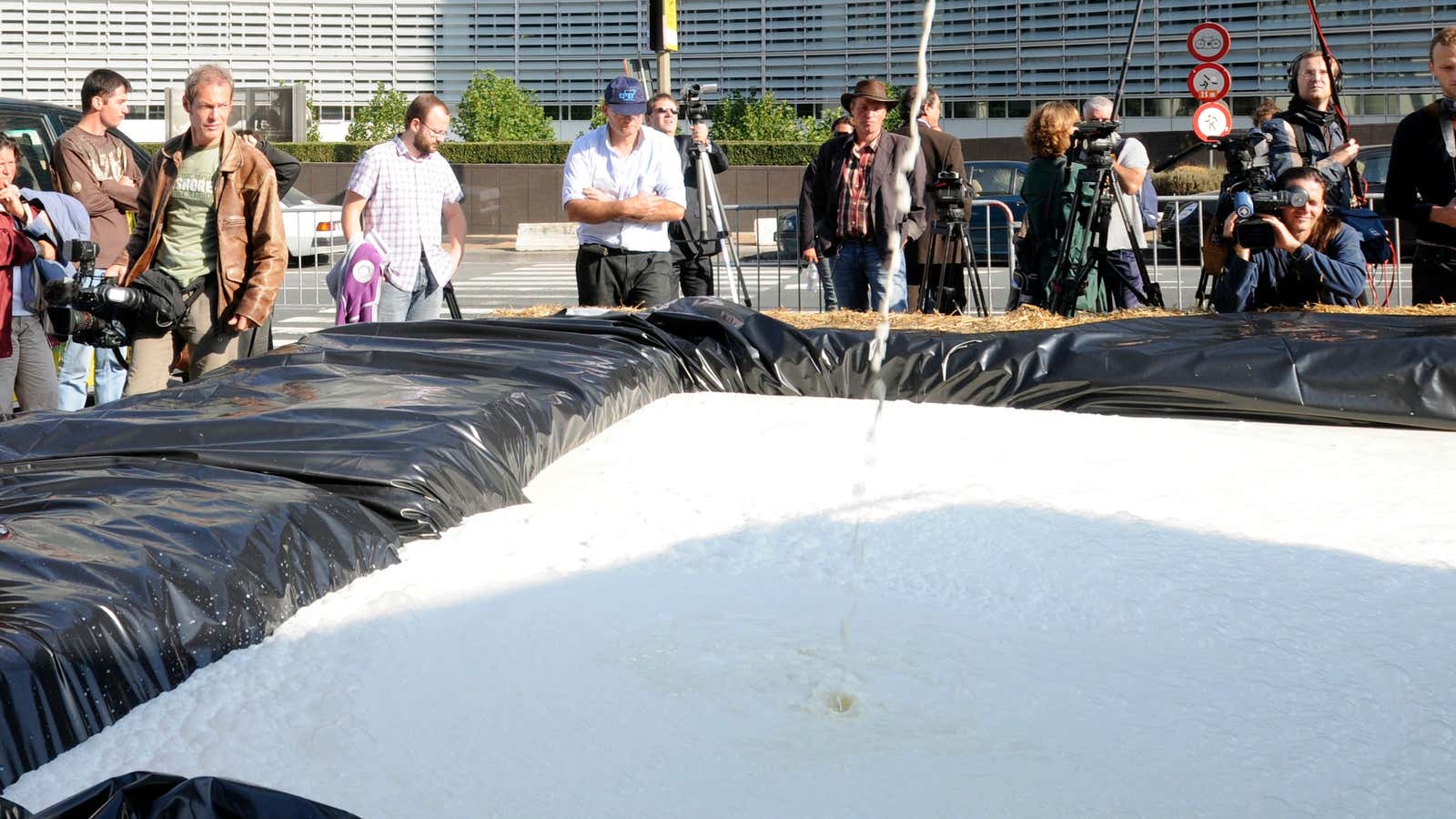We’ve lamented the US Congress’ failure to do anything particularly constructive in the last two years, but the latest example really takes the cake, or at least takes away the milk you might enjoy with your cake.
In a monument to the relentlessly short-term focus of American legislators, the law that maintains US farm subsidies, food stamps and other agricultural policy hasn’t been permanently fixed since 1949. Each year, Congress passes a temporary farm bill instead. Except that this year, with the election and the fiscal cliff, the House of Representatives has failed to adopt the latest update. And if it doesn’t do anything by Jan 1., as appears likely, America will revert back to the 1949 law.
In 1949, America was a somewhat different place. Cows were milked largely by hand, and production costs were much higher. The law protects farmers from hardship by obliging the government to buy up dairy products from them if the market price falls below a certain level. The farm bill updates this minimum price each year. If it reverted to 1949 rates, the government would have to keep on buying dairy until it cost as much as double today’s market prices.
The initial windfall for dairy producers rushing to sell their stuff to the government would result in shortages and higher prices for consumers. The government, meanwhile, would be desperately searching for space to store all the cheese, butter and milk it had acquired. (And don’t even ask us what happens when it goes rancid.)
Needless to say, the “milk cliff” has produced much hilarity and a lot of terrible puns, but it’s also a monument to the US government’s dysfunctional nature. True, the possibility of a severe recession may merit the focus of Congress rather more, which is why today’s high-powered government confab featured a focus on fiscal policy, not milk-price support formulae. But unless the House passes a bill (which it may do on Sunday, or early in January), the milk cliff is another unforced error the US economy doesn’t need.
